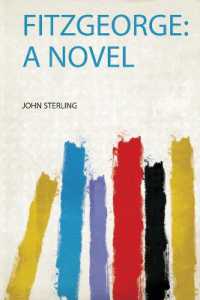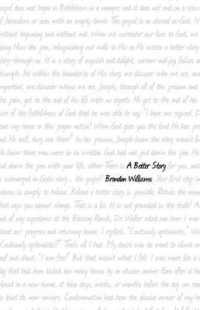Full Description
In Inheritance within Rupture, Luo Zhitian brings together ten essays to explore the themes of change and continuity, rupture and inheritance from the late Qing through the early Republic (1890s-1940s). Rejecting binaries such as tradition/modernity, conservative/liberal, Luo blurs the divisions between intellectual opponents and clarifies the divergences between scholarly friends. Centering these discussions around some of the most famous intellectual debates in the modern period, Luo challenges our understanding of ideological positions, political affiliation, and scholarly identity in early twentieth-century China. By focusing on the influence of cultural inheritance within the rupture of modernity, we come to understand those concerns shared by all Chinese in their own times and in the present.
Contents
Series Editors' Foreword
Preface
Historical Continuities
Inheritance in the Anti-Traditional Turn
The Complete Negativization of Tradition
About this Work
Chapter 1. Turning Heterodoxy into Orthodoxy: The Historical Transitions Manifested by the Boxer Incident of 1900
Intellectual Competitors and Allies in Social Categorization
'What Confucius Doesn't Talk About': The Post-Boxer Shift from Heterodoxy to Orthodoxy
Chapter 2. Confucianism, Non-Canonical Classical Philosophers, and the Yellow Emperor in National Learning: Late Qing Scholars and the Search for Symbols of National Identity
The Rise of the Study of Non-Canonical Classical Philosophers and the Struggle with Confucianism
Confucius and the Yellow Emperor: Contending Symbols of National Identity
An All-Encompassing National Learning
Chapter 3. The Dream of a Chinese Renaissance: From the Late Qing 'Revival of Ancient Studies' to the Republican 'New Tide'
The Revival of Ancient Studies in the Late Qing
The Renaissance and Interpreting Qing Scholarship
Additional Thoughts
Chapter 4. Into the Museum: The Removal of 'the Ancient' from 'the Modern' by Scholars Pursuing 'the New' in the Late Qing and Early Republic
Its Origin in the Late Qing
Its Development in the Early Republic
The Antiqued 'Heritage' and the Real 'Nation'
Chapter 5. Reading and Tradition: The Evolution of an On-Going Concern among
Late Qing and Early Republican Scholars
Reducing to the Minimum: Preserving Tradition through Simplification
Stretching the Concept of 'Using the New to Preserve the Old' in the Late Qing
The Early Republican Discussion of What Study-Abroad Students Should Read
Study Abroad and Tradition
Chapter 6. Rejuvenating the Old to Better Understand the New: 'Historical Perspective'
in the Late Qing and Early Republic
Perfecting the Old through Daily Renovation
Weeding Through the Old to Bring Forth the New and Rejuvenating the Old to Better Understand the New
Chapter 7. Exploring the Historical Relationship between Scholarship and Thought: Late Qing and Early Republican Intellectual Debates on 'National Learning'
Intellectual History and the History of Scholarship
Intellectual Debates about National Essence, National Heritage, and National
Learning in the Late Qing and Early Republic
Chapter 8. 'Mr. Science's Turn Towards National Learning and History: An Example of
"Science" as Seen by the Chinese Public During the May Fourth Period.
'Science,' Learning, and Techniques in Modern China
How Did Science Turn towards Reorganizing National Heritage?
The Rise of Historical Materialism after the Turn from National Learning to History
Chapter 9. The Voicelessness of Literature: Reorganizing National Heritage and Evidence-Based Research on Literature
Was the Vernacular the Mainstream of Chinese Literary History?
Europeanization, Classicization, and Popularization: Trends in the Vernacular
The Breakthroughs and Inheritances of The New Redology in the Context of the Literary Revolution
When Ritual is Lost in the Capital, Seek it in the Country: Modern Expressions of Tradition
Concluding Remarks
Chapter 10. The Rise of Materialism: A Trend in Twentieth-Century Chinese Culture
'Material Essence' and 'Cultural Essence' in Late Qing Intellectual Discourse
Visible and Invisible: From the 'Spiritual' to the 'Technological' in Science
Culture is also National Power: The Spread of Utilitarianism in Society and Oppositional Efforts
Appendix: List of Names
Bibiliography







